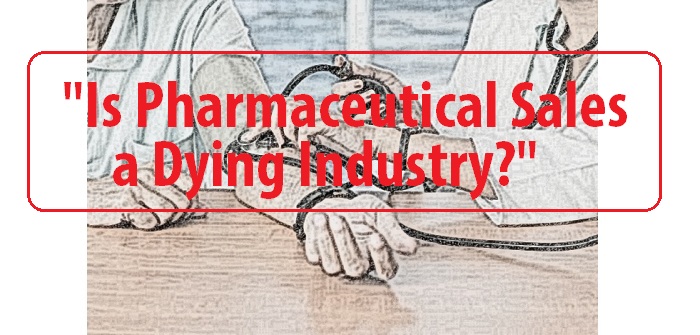PHARMA INDUSTRY BACKGROUND
The pharmaceutical industry used to be a busy industry, often at the forefront of advances in medical care.
It was considered one of the fastest-growing career opportunities and an important source of income for many people.
According to a recent study by the Centers for Disease Control and Prevention, the average salary of these positions was between $68,000 and $82,000, and it's easy to see why.
In fact, the Pharma Sales Salary Report 2019 found that pharmaceutical sales staff earned an average of $111,476 per year in an average year.
In a rapidly developing pharmaceutical industry, pharmaceutical representatives train doctors and other medicines - and prescribe the benefits of their products to professionals.
A career in pharmaceutical sales could prove a stable employment economy based on the never-ending need for doctors and clinicians to write prescriptions for their patients.
The pharmaceutical industry is growing rapidly, more medicines are coming onto the market every day and drug sales are increasing by up to 6%.
The number of pharmaceutical sales representatives is continuously increasing, which, according to a study, leads to a reduction in the quality of visits.
In his book, The Future of Pharma, Brian D. Smith writes that sales representatives must travel regularly to meet with doctors.
To qualify for a job in a pharmaceutical company, sales representatives need to develop these strengths to help them increase customer traffic.
This will limit their interactions with their doctors, which could jeopardize their work.
THE CURRENT SITUATION OF PHARMACEUTICAL INDUSTRY
Currently, healthcare professionals (HCPs) do not have enough time to see pharmaceutical sales representatives.
When they do see them, they can expect more educational information from the representatives than ever before.
Pharmaceutical salespeople cannot afford to contribute to the negativity that swirls around their industry.
Under pressure, pharmaceutical companies are looking for new ways to present their products to their customers, especially in the US.
The combination of digital and physical channels, when used well, creates flexibility and promotional efforts that are designed to meet sales targets with adequate resources.
Pharmaceutical companies are looking for ways to showcase their products in a variety of ways - online, in person, locally, and even through social media.
Individual sales visits still have a significant impact on a company's overall sales and marketing strategy, but it is very important that the focus is on delivering exactly what doctors need and...
...to connect with providers to provide their patients with first-class care.
But Social Media and websites will be the primary revenue generator for pharmaceutical companies.
This is beneficial for physicians, as they receive useful information about new products that increase their medical competence.
However, if doctors do not receive this additional benefit, their access to sales representatives will be restricted, according to a study.
The Death of the Salesman Pharma paradigm is so serious, however, that many are considering a complete restructuring of professional reality.
In fact, what is happening now is not the result of a single event, but rather a combination of factors like these that have contributed to the continued decline in drug sales in the US and the rise of embattled distributors.
FUTURE FOR PHARMA
Hospitals and pharmaceutical companies have traditionally seen themselves as transaction partners, but the relationship has changed dramatically.
As independent hospitals have become part of larger health systems, they have gone beyond the role of simple buyers and improved their relationships with pharmaceutical companies.
From the point of view of ethics and compliance, we can see the reasons why we need to better manage the way pharmaceutical representatives enter the market.
For the benefit of patients, they still need to work with Big Pharma, but the old model of pharmaceutical sales reps is outdated, especially for those employed in large integrated health systems where such sales practices are now banned.
SUMMARY
Despite the controversy, even pharmaceutical sales staff who say they sell undisputed products see a rosy future.
In fact, despite the sale of controversial products, 50 percent believe that legalizing medical marijuana will have a positive impact on their jobs, and 38 percent say the same about the opioid crisis and new laws.
Despite this optimistic outlook, pharmaceutical officials are also pessimistic about their employment prospects for the next few years.
A friend of mine, who sells for Pharma, told me that he can't say enough good things about his job.
Drug officers have a bad reputation because they do not actually sell drugs, but other products and services such as marketing.

No comments:
Post a Comment